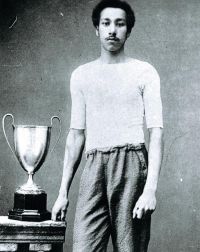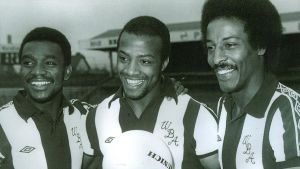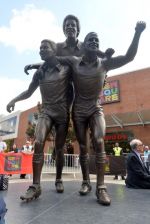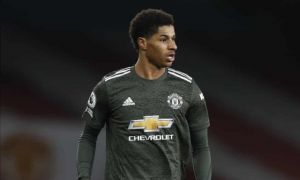English Football
Football, also called association football or soccer is a game involving two teams of 11 players who try to maneuver the ball into the other team’s goal without using their hands or arms. The team that scores more goals wins. It is the world’s most popular game sport and according to Fédération Internationale de Football Association (FIFA), there were more than 1.3 billion people have an interest in football.
Based on the history of football, many countries as China, Rome, Greece, and parts of Central America have been stated to be the first who began the game. But Britain has become the pioneer of the football game as we know it today, by creating standard rules for the game.
At the beginning of the 20th century, football had spread across Europe, yet it required global association. An answer was found in 1904 when delegates from the football association of Belgium, Denmark, France, the Netherlands, Spain, Sweden, and Switzerland established the Fédération Internationale de Football Association (FIFA).
Contents
History of Racism in English Football
In the early time of English football, racism was founded in the mid-1880s. Arthur Wharton, who plays as a goalkeeper for Preston North End (1886-89) has faced racial abuse. Not only get discrimination from his opponents but also by the commentators who called him darkie because of his skin color. The same thing also happened to Walter Tull, a Tottenham Hotspur player in 1901. He experienced racism where he was being attacked verbally on the pitch by the other’s team supporter in Bristol. The Northampton Echo stated: "A section of the spectators made a cowardly attack upon him (Walter Tull) in language lower than Billingsgate...Let me tell these Bristol hooligans (there were but few of them in a crowd of nearly twenty thousand) that Tull is so clean in mind and method as to be a model for all white men who play football whether they be amateur or professional. In point of ability, if not in actual achievement, Tull was the best forward on the field."[1]
By the time of 1920s, William Dean or well known as “Dixie Dean” was become the object of racism in English football. His nickname was referred to his skin and wavy hair. Dean hated named “Dixie” and he even asks his teammates to use his real name to call him. After a game in 1938, Dean was leaving the pitch and punched someone in the face when he said “black bastard” to him. Then, police came running over yet as opposed to capturing him, shook him by the hand.
Three Degrees in English Football
After many years have passed, the problems of racism in English have not become better. Until the 1970s, English football could be a tough place for an individual of color. Viv Andersen was the first black man who plays a full international match for England in 1978. In his career as a football player, he regularly faced racial abuse from the other’s team supporters. In his interview with ITV documentary series, he told them that he had pears, bananas, and apples thrown at him when he was in Carlisle for gameplay.[2]
While the game still has big issues on racial abuse, West Bromwich has made a breakthrough by giving The Three Degrees of Cyrille Regis, Laurie Cunningham, and Brendon Batson their spotlight. Started from these little steps, they opened the path for a more black footballer to take up football with their brilliant performance and it makes the racist silenced. It was the first run through a top club played by three black footballers. Regis, one of the stars has born in French Guiana and moved to London when he was 5 years old. This is where he begins to love football. Although he is a skillful player, he cannot get a pro contract from a club in London because of his skin color. However, West Brom scout Ronnie Allen was excited about his capacity, offering to pay his wages at the club himself. The club took the risk even during that time black footballer considered has no skillset they need or came up short on the strategic standpoint to deal with the English game, yet Regis' joining the team and ensuing achievement refuted them all. Then the other member of The Three Degrees is Laurie Cunningham, a brilliant player who is loved at Hawthorns for his capacity to easily and make chances at unrestrained choice. His career begins at Leyton Orient before turning into a core player for The Baggies. He became the first English footballer to join Real Madrid, by joining Real Madrid broke the statement that black people don’t have the skill and have proof that he is as good as a white footballer. The last one who joins the trio was Brendon Batson which joined the team as a defender. He grew up in Grenada and moved to England when he was 6 years old.[3]
The name of Three Degrees was inspired by an American female group that also has a black skin color. Under the management of Atkinson, three of them regularly experienced racial abuse from monkey chants to serenades of "get back on your jam jar" and different other revolting abuses that comes from the supporters. Their existence in the football world would be a big help to break racism and stand up against racial abuse with their great ability. Thus, the more black footballer that showed up with many clubs and down the nation implied the racial abuse became however cliché as it might have been silly particularly as the number of talented black footballer increasing.[4]
As a tribute for their dedication to football and as a pioneer to the black footballer, Professional Football Association donated £38,000 for the statue of The Three Degrees, made by Graham Ibbeson. This bronze statue has been exposed in the West Midlands.[5]
Today’s Racism in English Football
According to English football’s equality and inclusion organization, Kick It Out indicate that discrimination in football getting higher during 2019/20. Their graphics show us that there was 42% increase in discrimination, a rise from 313 to 446. There was also a 53% increase in reported racial abuse in the professional game between this season and last, up from 184 to 282.[6]
It is indicated until now that racism is still becoming an issue in football. Even now there was more black footballer has joined with the big club, but they still faced the same problem. They keep on being exposed to racist abusers not just on the pitch but also on a different platform and it is a social media like Twitter and Instagram. These online racisms attacked directly many famous black footballers. One of the victims was Marcus Rashford who received online racism on social media. After receiving abuse, he posted messages on Twitter in response to the racist issue he got with tweets “humanity and social media at its worst. Yes I’m a black man and I live every day proud that I am. No one, or no one comment, is going to make me feel any different. So sorry if you were looking for a strong reaction, you’re just simply not going to get it here.”[7]
The Football Association (FA) has stood and said vowed to work with lawmakers and web-based media organizations to brace down on racism. To show solidarity, Premier League teams have been taking a knee before the match this season. However, there is more proactive action to the issue now. The two players and clubs have asked online media organizations to accomplish more in battling prejudice on their foundation - an issue featured once more by the new spate of occurrences. Premier League Chief Executive Richard Masters said he was "shocked" by the new spate of occurrences and said the alliance would keep supporting players and their families. Masters has said that they are in exchange with online media organizations, moving them to accomplish more against oppressive racist on their foundation and need to see swifter removal of offensive messages and improved identification and banning of offenders.[8]
References
- ↑ Simkin, John. Racism and Football: 1880-1945, January 2020. Spartacus Educational. Retrieved March 24, 2021
- ↑ France, Sam. Who was the first black footballer to play for England?, 15 October 2020. Goal. Retrieved March 24,2021.
- ↑ Tejwani, Karan. West Bromwich Albion’s Three Degrees: Pioneers in English Football, 10 June 2020. Breaking The Lines. Retrieved March 24,2021.
- ↑ Crist, Matthew. Three Degrees of Separation: The Men Who Changed the Face of English Football 40 Years Ago, 13 February 2018. The Sportsman. Retrieved March 24,2021.
- ↑ White, Nadine. Tribute To Legendary Black Footballers 'The Three Degrees' Unveiled In West Bromwich, 21 May 2019. Huffington Post. Retrieved March 24,2021.
- ↑ DISCRIMINATION IN FOOTBALL ON THE RISE, 3 September 2020. Kick It Out. Retrieved March 24,2021.
- ↑ Tindall, David. Rashford is latest player to receive abuse as FA vows action against online racism, 30 January 2021. The Guardian. Retrieved March 24,2021.
- ↑ Church, Ben. Manchester United star Marcus Rashford racially abused online, 31 January 2021. CNN. Retrieved March 24,2021.




